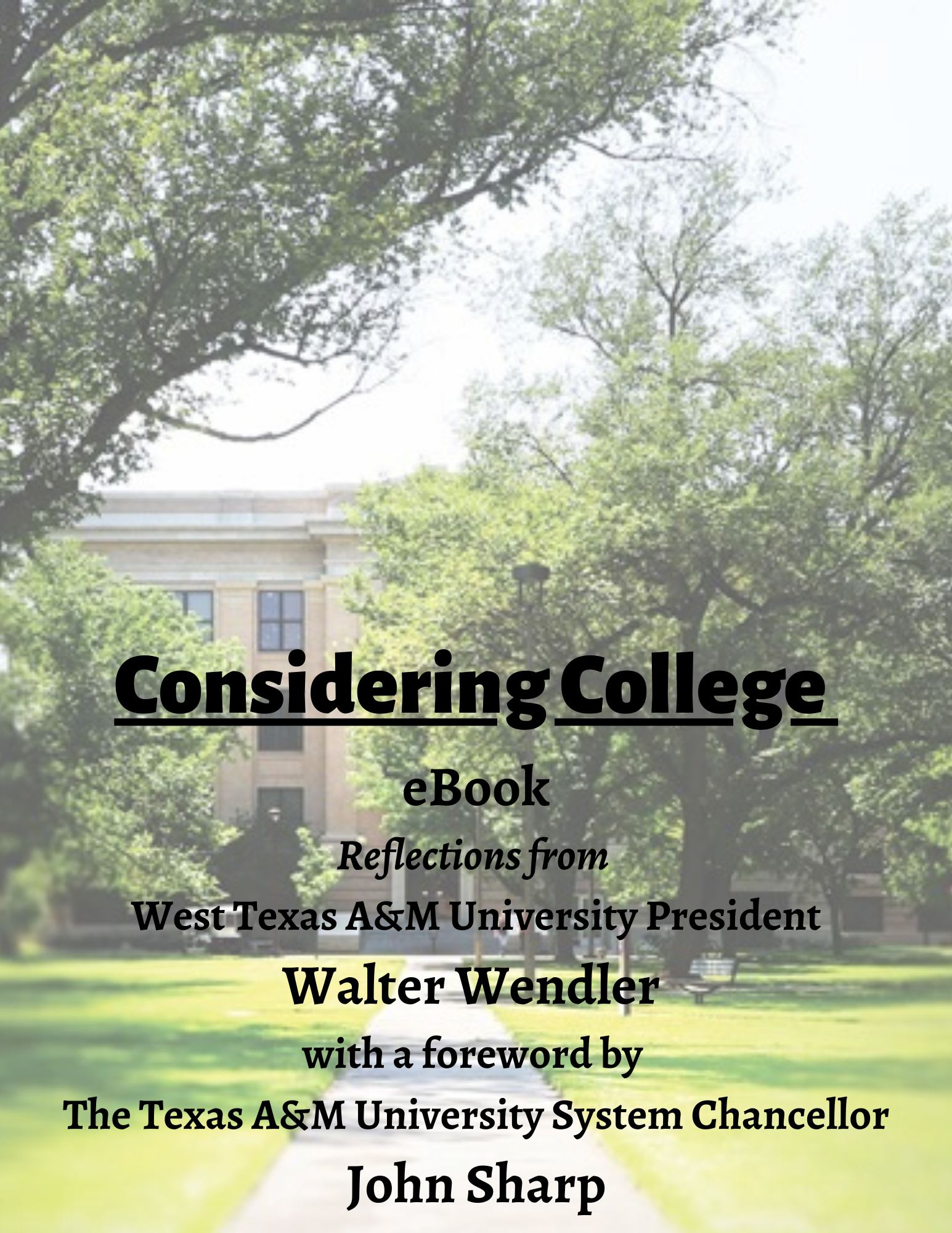
The 24-hour news circuitry is alive with concerns about COVID-19, its impact on people and the economic crater left in its wake. No segment of the American economy or enterprise, the faith life of Americans, or any other aspect of our lives is untouched. Various outcomes are predicted and accountability demanded for actions and impacts over which leaders have little control and less knowledge. Sorting all of this out, and the collective impact on universities, will be left to pontificating pundits.
Rather, I would like to share a few thoughts for soon-to-be high school graduates and transfer students on choices that will be made or reconsidered in the light of COVID-19. Meager insights offered are distilled from a tour of 132 high schools in the Texas Panhandle and South Plains.
I recently spoke with a friend of mine from Southern Illinois whose daughter has been offered an excellent scholarship at one of America’s great Ivy League universities in the nation’s greatest city. He told me that in all likelihood the lucrative offer for the fall will be delayed until the COVID-19 curve flattens. I understand, and he and his family are not alone. Many people are reconsidering life choices made only months ago.
Any recent high school graduate and their family who have concerns about being “far from home” in the wake of uncertainty stirred up by the virus might consider spending a year close to home. Many excellent regional institutions like West Texas A&M University could be a launching pad for the future. Thousands of dollars could be saved, particularly if people chose a commuter route rather than a residential route. Advisors at a place like WT would be pleased to work with students. Locally accessible on-campus or online courses taught by excellent faculty in a challenging academic environment would provide excellent transfer potential while providing peace of mind and a sense of safety. Regional university advisors and faculty could and would help. It is a compelling time to think differently about how to attain a high-quality low-cost education.
Students and families might be surprised at the nature of residential life at many regional universities. Living on campus and interacting with people different from oneself add value to a university education. Vibrant learning technology and interactive opportunities allow many valuable relationships to be built online. The future will hybridize both to the benefit of each.
My counsel? Do not be a prisoner of predispositions. We live in an unfolding time with a lack of clarity rarely equaled in domestic life outside a time of world war or depression. Many families are strapped financially and emotionally. Geographic closeness provides a mild ointment to the raw sting of insecurity.
Regional universities in Texas frequently call smaller communities home, and, often, they are safe places to be. West Texas A&M University was just named the safest campus in Texas and among the ten safest campuses in the United States. WT is proud of its tradition of being a physically safe, but intellectually challenging, place to study.
Regional universities should be particularly sensitive to the needs of students who come from rural regions. WT is. I expectantly visited 132 high schools in the top forty-six counties of Texas. Many of these high schools have fewer than 100 students. One school had an even dozen students in grades nine through twelve. Compared to many of their urban brethren, they are minuscule—but in size only.
Regional universities afford a transition from a close, face-to-face world, to a world where expectations from students and teachers may be different. West Texas A&M University has intentionally focused on the aspirations of such students. Columbia University can rightfully claim its place of influence in the financial, trading and cultural center of the world. Communities in West Texas can proudly claim the spit and tenacity of a different position in a different, but vitally important, section of the international socio-economic world.
I have recently published an e-book entitled Considering College. The considerations therein implore students and families to consider observations and ideas gleaned from my visits to schools rich in culture and constructed on values that mimic the heritage of the national enterprise. This e-book is free and is available at www.wtamu.online/considering-college. Take a look at it if you’re a junior or senior in high school, even if you have “fixed” plans for the future. Observations, humbly offered, may provide valuable insights gleaned from the people of the plains. One of the great lessons of the prairie is that a future predicted is just that—predicted—and nothing more.
The swirl of current circumstances requires unequaled dexterity.
In a sea awash in uncertainty, the confidence of purpose justified by thoughtfulness and practicality is a gift—if but exercised.
Walter V. Wendler is President of West Texas A&M University. His weekly columns are available at http://walterwendler.com/.
